Their only hope of survival was waiting for Mr Micawber's '˜something to turn up'
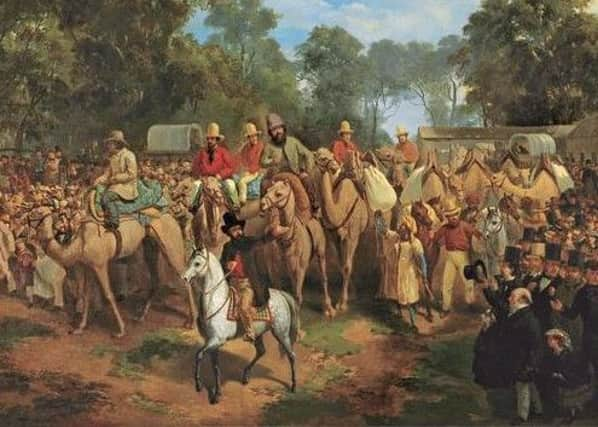

Daniel never reached his goal and wasn’t able to describe it in his memoirs but if he had he would surely have contrasted the parched Sahara with the lush green hills of Tyrone.
Traveller’s accounts make gripping reading, particularly the words of heroic explorers like Houghton from days of yore.
Advertisement
Hide AdAdvertisement
Hide AdOne of the most memorable records was written over a century ago in 1912 – “I am just going outside and may be some time.”
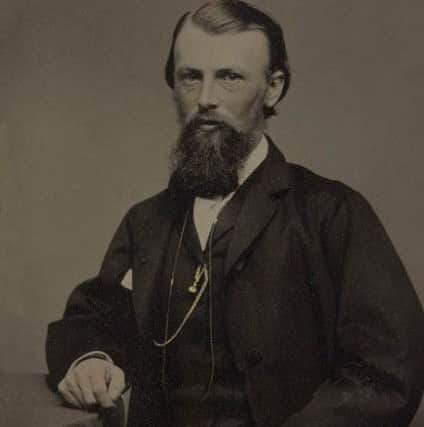

After penning his poignant message, 31-year-old Antarctic explorer Captain Lawrence Oates set out to meet his death on the South Pole and entered the annals of history.
Much happier but equally memorable was astronaut Neil Armstrong’s small step for man and giant leap for mankind, on the moon in 1969.
Much closer to here, roving-clergyman the Reverend Richard Hamilton used a familiar comparison from his home in England, mentioned on Roamer’s page last year.
Advertisement
Hide AdAdvertisement
Hide AdIn 1828 the Rev Hamilton arrived in Belfast and noted in his memoirs “it reminded me at once of Liverpool. Belfast is a vast creation of commercial enterprise and luxury.”
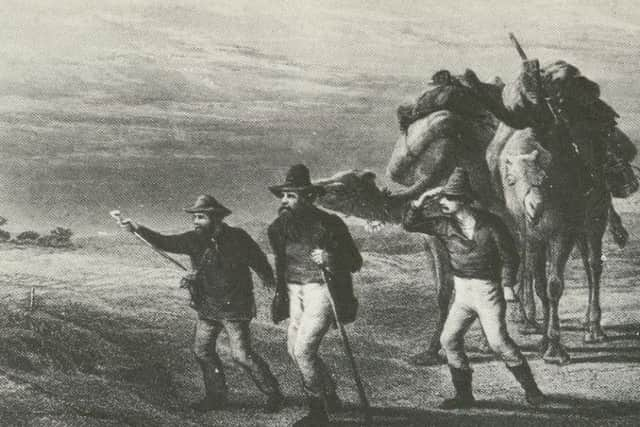

Another writer-traveller in Northern Ireland mentioned on Roamer’s page last year used a trans-Atlantic evaluation.
“Of all the cities I know,” wrote George Birmingham in 1934. “Chicago most nearly resembles Belfast in self-confidence and fierce energy.”
A tragic diary-entry written in 1861, concerning an explorer from Galway, used a quote from Charles Dickens to describe a terrible predicament on the other side of the globe.
Advertisement
Hide AdAdvertisement
Hide Ad“Mr Burke suffers greatly from the cold and is getting extremely weak,” wrote William John Wills, adding: “I can only look out like Mr Micawber ‘for something to turn up’.”
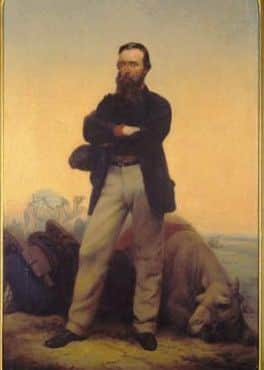

(Micawber is the clerk in Charles Dickens’s 1850 novel David Copperfield, traditionally identified with the optimistic belief that something will always ‘turn up’.)
William Wills was writing about Galway-man Robert O’Hara Burke, his colleague-traveller on the famous Victorian Exploring Expedition in inland Australia.
Usually known as the Burke and Wills expedition, it remains as one of the most celebrated journeys of the ‘heroic era’ of Australian land exploration.
Advertisement
Hide AdAdvertisement
Hide AdRobert Burke was born at St Cleram, Co Galway, in 1820, and was educated in Belgium.
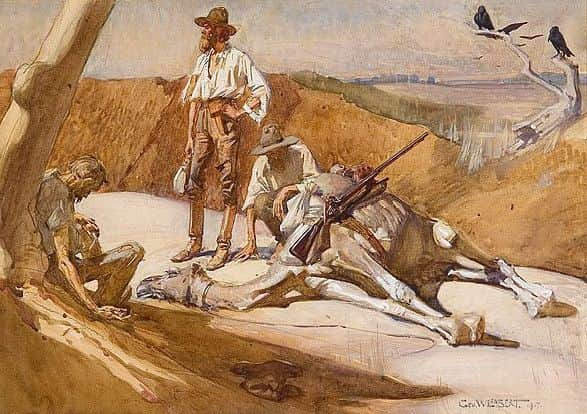

He entered the Austrian army in 1840 and rose to the rank of captain.
In 1848 he joined the Irish constabulary and in 1853 emigrated to Australia where he became an inspector of police in Victoria.
In 1860 he was appointed to command an exploring expedition despatched for the purpose of crossing the Australian continent from south to north.
Advertisement
Hide AdAdvertisement
Hide AdWills’ and Burke’s diaries of the journey describe the impossible odds they faced in an unknown outback.
Their tragic fate received international attention.
When they started out, it was described as the best equipped expedition in Australia’s history.
Led by the Galway-man, the team of explorers set off with some 21 tons of equipment.
Their departure from Royal Park in Melbourne on August 20, 1860, was a major public event and they were given a rousing farewell by over 15,000 onlookers.
Advertisement
Hide AdAdvertisement
Hide AdOne novel feature was their camels, specially imported from India, from which great results were expected.
Dissensions soon arose, and several members of the exploration team dropped out.
Burke and Wills reached Cooper’s Creek on November 11, one of three major Queensland river systems that flow into the Lake Eyre basin.
After a long wait for supplies, which failed to arrive, they made a dash for the Gulf of Carpentaria on December 16, leaving the bulk of their stores in charge of one of their team members, with directions to await their return in three or four months.
Advertisement
Hide AdAdvertisement
Hide AdThough not actually coming within sight of the sea at the other end of Australia, Burke and Wills reached the tidal waters of the Flinders River and won the fame of being the first white men to cross the Australian continent.
But on their return to Cooper’s Creek on April 21, exhausted with hardships, they found that their companion had interpreted his instructions too literally and abandoned his post that very same day, leaving only a small stock of provisions.
Against the advice of Wills, who wanted to chase after their companion and retrieve their supplies, Burke determined to strike for other stores along the route, which he had been misled into believing were much nearer to Cooper’s Creek than was actually the case.
He was driven back by want of water, and, too weak to make another attempt, was constrained to wait at Cooper’s Creek, subsisting mainly on food casually obtained from friendly natives, themselves scarcely able to subsist in the desert.
Advertisement
Hide AdAdvertisement
Hide AdBurke died of starvation on June 28, 1861 and Wills around about the same time.
Only one explorer, John King, survived the return journey.
Near death, he was cared for by the indigenous Yandruwandha people until a relief expedition rescued him.
Amongst the others who died were Charles Gray, Ludwig Becker, Charles Stone, William Purcell and William Patton.
One of the final, weakly-written notes in William Wills’ diary describes a “clear cold night, slight breeze from the east”.
Advertisement
Hide AdAdvertisement
Hide AdThe diary refers to Burke’s extreme weakness due to starvation and tragically concludes “nothing now but the greatest good luck can now save any of us.”
There’ll be more here soon about Australia’s famous Victorian Exploring Expedition, hopefully with further information sent by readers to Roamer’s mailbox.